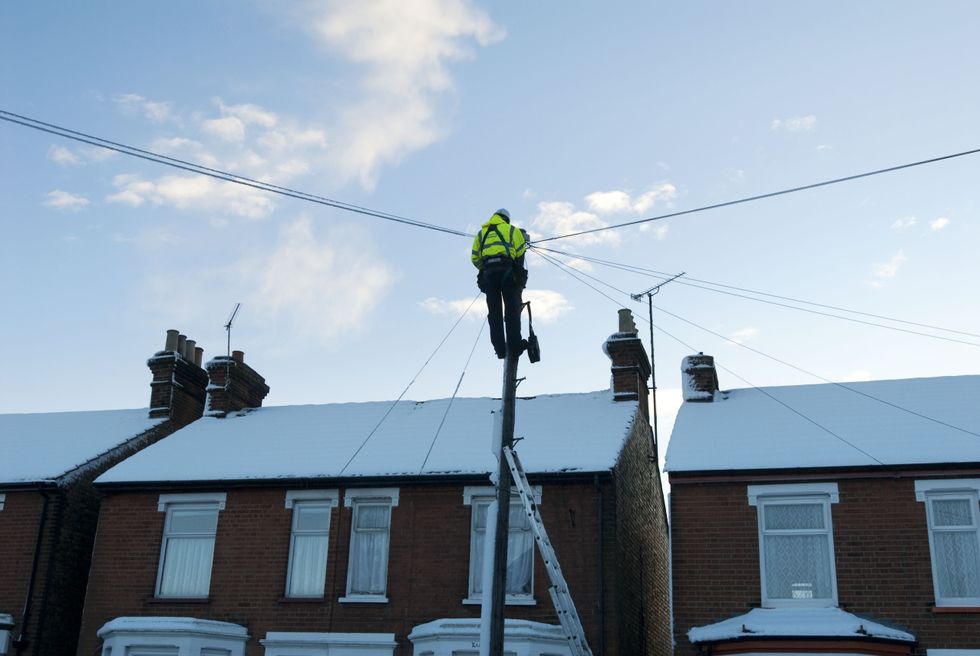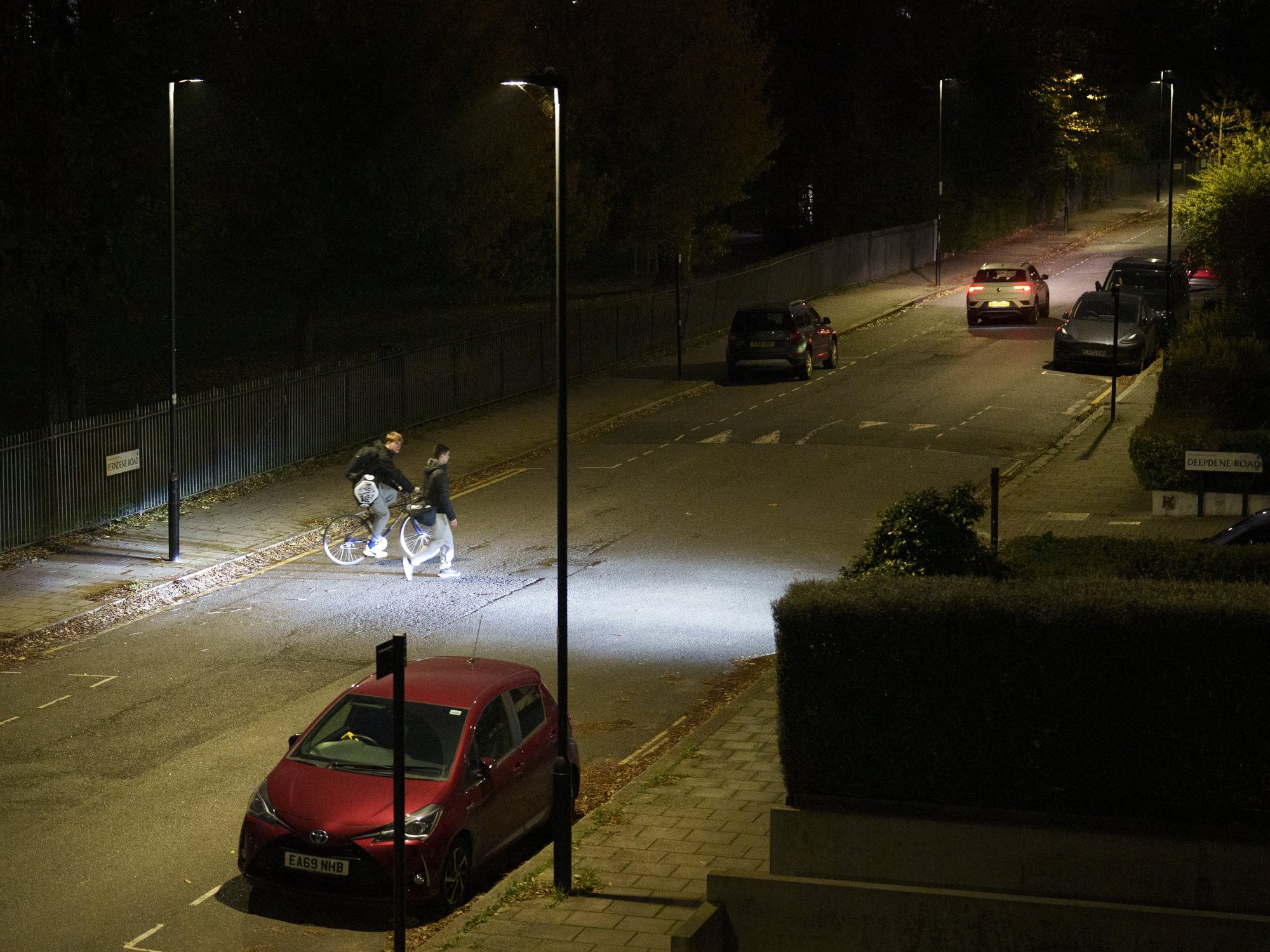BT-owned Plusnet will ditch landline services for ALL customers after UK switch-off

All products are independently selected by our experts. To help us provide free impartial advice, we will earn an affiliate commission if you buy something. Click here to learn more
|PLUSNET PRESS OFFICE

Plusnet will become a broadband-only brand
- Plusnet, which is owned and operated by BT, will focus on broadband
- It will stop offering phones following switch-off of traditional landlines
- Nationwide switch-off is expected next year
- Plusnet confirmed plans to ditch its mobile network business too
Don't Miss
Most Read
Plusnet will cull its landline services for all customers following the planned switch-off of traditional landlines nationwide next year. The BT-owned brand has confirmed that it won't follow the likes of BT, TalkTalk, Virgin Media and other major broadband suppliers by installing broadband-powered landlines — often marketed under the brand name "Digital Voice" — to customers when the switch-off is completed.
Landlines are being overhauled across the UK, here's everything you need to know in under 5 minutes
Plusnet will focus on broadband-only packages.
Existing Plusnet customers can continue to use their existing phone line for the time being, but will need to move to a broadband-only service with the company or switch to another provider in the coming months.
Broadband-only customers with Plusnet will be able to make calls with their mobile phone via Wi-Fi calling or using Voice Over Internet Protocol (VoIP) applications, like WhatsApp, Messenger, and Skype.
For those who want to keep a landline number and phone, Plusnet suggests switching to a contract with its parent company BT, which offers Digital Voice handsets to all broadband customers. Although, there's nothing stopping Plusnet users looking elsewhere at deals from TalkTalk and Virgin Media, which both offer internet-powered landlines for new customers too.
The move to broadband-only isn't the only shake-up at Plusnet, which recently shuttered its mobile service, which piggybacked on EE masts nationwide. Anyone with a Plusnet-branded SIM tucked inside their mobile phone is being encouraged to switch to EE, which is also owned and operated by BT.

Virgin Media introduced a number of safeguards to protect vulnerable users, especially those with personal alarms, before it took the decision to restart installations
|GETTY IMAGES
There's no confirmed deadline for the switch-off of Plusnet Mobile, but the broadband expects to completely shut off the 100-year-old copper-based landline network across the UK by the end of 2025 — that's as long as rumours of a two-year delay due to safety concerns are ill-founded.
The announcement comes as a new survey revealed that thousands of Britons are still unaware of the incoming death of traditional landlines in the UK — despite being directly impacted.
A poll found almost 60% of Britons aged over 50 did not know about the mandatory change. If the results of this survey of 2,750 people were to be reproduced nationwide, that would leave thousands of people in the dark about the landline switchover.
For those who don't know, the biggest telecom providers in the UK — including BT, Virgin Media, and TalkTalk — want to replace the copper-based landlines that have powered phone calls across the country since 1911. Following the nationwide switchover, Britons will need to use broadband-powered landlines to make all calls.
Millions have already been successfully upgraded to the next generation of home phones, which are powered by the same cable infrastructure as full-fibre broadband.
Known as Voice over Internet Protocol (VoIP), these phone lines promise clearer call quality, better spam protection, and many modern features, like placing incoming calls in a queue when you're already speaking on the phone and blocking all withheld numbers.
Earlier this month, Virgin Media O2 restarted its landline switchover for the 16.2 million homes connected to its fibre network. The company suspended all installations of its VoIP landlines at the end of last year at the same time as BT, EE, Plusnet, and other major telecoms over concerns around personal alarms
These alarms, often worn on a lanyard around the neck or a bracelet, are used by an estimated 1.8 million elderly and vulnerable people across the UK. While the majority of these alarms — designed to be activated in a health emergency or after a fall — continue to work seamlessly with VoIP landlines, some critical calls failed to connect over the broadband-fuelled system, which led to a widespread backlash.
It's concerns around these alarms that could force BT to delay its deadline by two years.
Virgin Media O2 says it's spent the five months since it suspended digital landline switchovers conducting a "detailed end-to-end review of our processes".
"We’ve now introduced a host of new measures which make it easier to identify and support those who need extra help. For example, we have improved the communications customers receive; our engineers will provide additional in-home support; and we have carried out extensive checks to better identify vulnerable or telecare users," explained Rob Orr, Chief Operations Officer at Virgin Media O2.
Plans for a UK-wide landline switch-off were first announced back in November 2017. Unusually, this was not a Government-backed initiative or deadline, everything originated with the telecoms.
However, it mirrors similar initiatives taking place across mainland Europe, as many countries look to modernise and future-proof their infrastructure. Justifying the disruptive switchover, industry heavyweights said they were struggling to find parts to maintain and repair analogue phone lines as few companies are still making the components used by this Century-old system.
LATEST DEVELOPMENTS
- Millions of BT landlines turned off ahead of 2025 deadline — explained
- Hidden cost of broadband from BT, Virgin Media, Sky and TalkTalk
- Use Windows 10? Microsoft wants to charge you £337 to keep using it
- Best VPN deals
If you've signed up for a full-fibre broadband plan within the last 12 months, chances are, the handset sent out to you by your provider is already relying on the internet to make calls. BT, EE, and Virgin Media all use the term "digital voice" to describe VoIP landlines, but your provider might use something different.
 Digital Voice handsets connect directly to the Wi-Fi router and use broadband to make and receive phone calls to landlines and mobile numbers worldwide | BT PRESS OFFICE
Digital Voice handsets connect directly to the Wi-Fi router and use broadband to make and receive phone calls to landlines and mobile numbers worldwide | BT PRESS OFFICE If you're concerned about the switch, compatibility with your equipment or telecare device, the best approach is to proactively reach out to your provider. Most internet suppliers will offer at least four weeks notice before the switch takes place, but ensuring that your records include any telecare requirements is a good way to make sure you get all of the additional care promised in the Government's charter.
Speaking at the time the agreement was announced, Technology Secretary Michelle Donelan reassured Britons: "It is absolutely right that the most vulnerable people in our society should feel safe, secure and have complete confidence in the services provided to them.
"That’s why I have brought our biggest network providers and industry regulator to the table, agreeing a cast iron set of principles to reassure people and put their minds at ease. The recent issues families have had to endure are unacceptable and today’s agreements will help to protect consumers in future."










